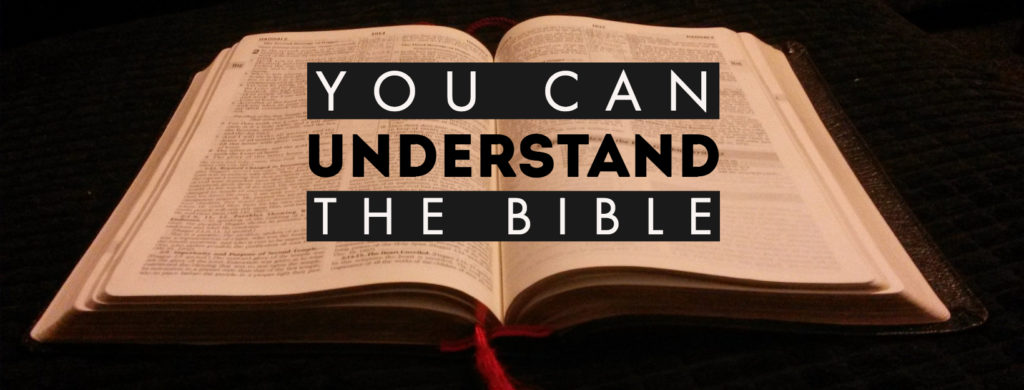Let’s Hold Fast to Our Commitment – You Can Understand the Bible

About 40 days ago, our church walked through a series called You Can Understand the Bible. The heart behind it was to encourage people to spend more time in their Bibles and to show some practical approaches for better understanding the Scriptures. Coupled with the series was a call to commit to a Bible reading plan for the year. If you are anything like me, it only takes about two or three weeks for the excitement of a new commitment to wear off. When that happens, it’s helpful for me to go back and revisit what I was excited about. Let’s review together what this series called us to so we can stay the course!
Russell Boone kicked off the series with the sermon Understanding the Bible with Jesus – Jesus is the Full Armor of God. He gave us a practical question to ask ourselves when we approach scripture: “What does this passage say about God?” In Ephesians 6, Paul is recounting about battle armor and telling the reader that they must put on God’s armor. Russell helped us to see that Jesus is that armor by showing us other places in scripture that directly point to Jesus as the word, truth, righteousness, peace, salvation, and shield of our faith. By asking the simple question, “What does this passage say about Christ?” we are able to better understand the Bible.
The following week, Jeff Lawrence walked us through the story of Josiah in a sermon called, Don’t Lose the Book, Use the Book. Josiah was appointed King at only eight years old! As he matured, he began to seek the God of his father (David). He was growing in maturity as he sought God and in doing so, he realized that something was off. God’s Word was missing from the temple, the place where God’s Word should be on full display. In a cleaning frenzy, probably much like you’d see on Marie Kondo’s Netflix Show Tidying Up, he found the scrolls that contained the Word of God and restored them to their rightful place. He called people back to proper worship based on the foundation of God’s Word. In doing so, he gave people a framework for growing in maturity and joy. When our life is based on God’s word, our hearts and minds are guarded by truth and our worship is aimed in the right direction. We find joy in seeking God! To borrow a phrase from Marie Kondo, we might say God’s Word “sparks joy.”
In the last week of the series, Caleb Harper preached a sermon called Understanding the Bible in Community. In an examination of 2 Timothy 3:16, Caleb helped us see that all scripture is God’s very breath and life for us. Therefore, it should be the main influence of our lives. He also helped us to understand the role that community plays in our own interpretation of scripture. Community brings diversity in how we understand the Word of God. This is a good thing when the Word of God is central and shaping the culture of the community. It can be a dangerous thing when the community begins to shape the Words of God to suit their own cultural preferences. We can better understand the Bible in community as long as the community sees the Bible as it truly is, “God-breathed and useful for teaching, rebuking, correcting and training in righteousness”.
Ah! Now I remember what I was excited about. As we hold fast to our commitment to better understand the Bible, let’s keep asking the question, “What does this passage show me about God?” Let’s dust off our Bibles and place them at the center of our lives so that we may grow in maturity and find joy in God. And let’s do this in a community that believes in the life-giving breath and authority of scripture to form and shape us. Let’s keep leaning in. Understanding the Bible does not happen overnight or in a handful of weeks. It takes dedication, commitment, and practice. You can do this, friends!
For more on this topic read:
Three Ways a Reading Plan Can Help You Understand the Bible by Caleb Harper
CLICK HERE FOR ONLINE ESV BIBLE READING PLANS
Click below for individual printable plans
- M’Cheyne One-Year (365 days)
- Daily Light on the Daily Path (366 days)
- Chronological Reading Plan (365 Days)
- 6-Month New Testament (182 days)
- A Psalm a Day (150 days)
- A Proverb a Day (24 days)
- 30 Days in the New Testament (30 days)
- ESV Systematic Theology Study Bible (30 days)
